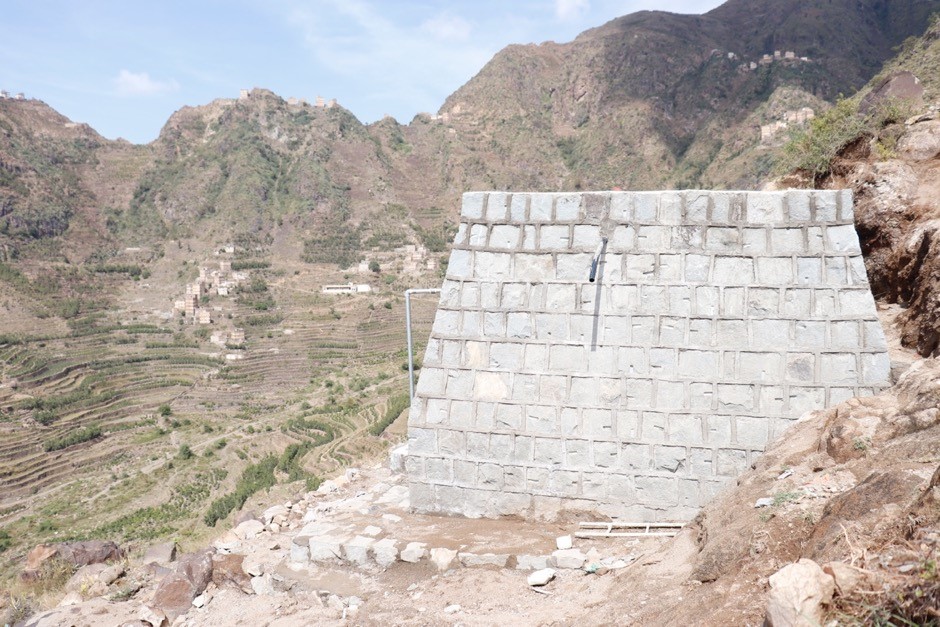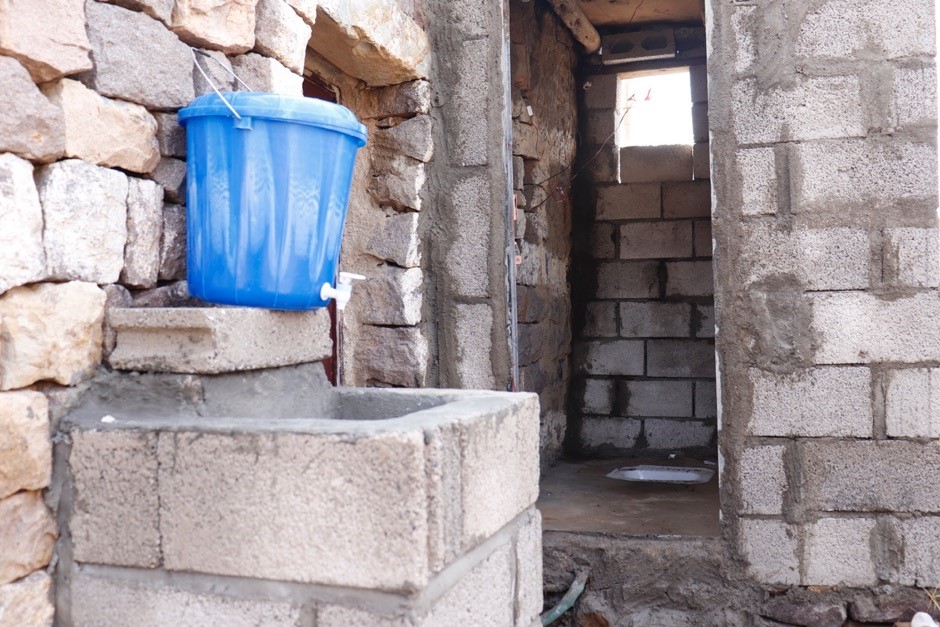After many years of conflict, millions of people do not have access to safe water, sanitation and hygiene services in Yemen. While getting water at home is a matter of turning on a water tap for many people around the world, for the locals of Qa’a Rajab in Sana’a governorate, northern Yemen, it is a long ride on a donkey to the nearest spring to fetch water.
“Locals can’t go on foot to the spring to fetch water due to the roughness of the roads,” says Fuad Abdu, a 40-year-old resident of Qa’a Rajjab. “It is very hard to carry a water container all the way home in such conditions under the hot sun, so they resort to using donkeys to help go back and forth. Using donkeys to go to the spring also contributes to contamination. While people fill the containers, donkeys often stand in the middle of the spring, contaminating the water with their waste.”
Elderly people are not able to fetch water from the spring, so women and children assume a greater burden. “Girls and boys don’t go to school, or they miss classes because they are responsible for fetching water,” says Fuad. “The rides between the village and the spring take two hours every day. One cholera case died due to the spread of the disease in the area, and it was too difficult to reach the nearest hospital. The roads are tough and patients are carried on people’s shoulders.”
Poor sanitation and hygiene have additional consequences for the residents aside from the immediate health risks. The lack of toilet facilities mean they have to look for secluded spaces to relieve themselves in private. This increases women and girls’ exposure to harassment, abuse and violence – particularly after nightfall. “Prior to the intervention, locals used to defecate in secluded spaces without using water to clean the area which also contributes to the spread of cholera,” Fuad explains.
CARE was the first humanitarian organisation to reach the area of Qa’a Rajab to assess the water and hygiene needs and provide humanitarian assistance. With funding from the US Agency for International Development under the H2O project, CARE was able to build a main water tank for the village benefitting more than 300 families, and in addition built 30 toilets to increase hygiene facilities in the village.
“Water is life,” says Fuad. “The construction of the new water tank not only means people now have access to safe, clean water, but also it is a sign that after many years of suffering, the village is starting to be clean and healthy. Before, we used to fetch some water, but it was never enough. Now, we have enough water for our daily chores. Thank you to CARE.”
Fuad adds that he hopes road paving projects will also be implemented, as they live in a remote area and it is very difficult to take people to hospital – particularly pregnant women who are among the most vulnerable.



